|
In late 1960 following
several abortive attempts to bring James Bond to the big screen, author
Ian Fleming met with Harry Saltzman, the UK based Canadian producer of
Look Back In Anger (1959), Saturday Night And Sunday Morning
(1960) and The Entertainer (1960). Saltzman took out a six-month
option on the James Bond novels (with the exception of CASINO ROYALE, as
the screen rights had been sold in 1954) and then feverishly went to work
trying to find a financial backer for the first film. Unbeknownst to
Saltzman, UK based American producer Albert R. Broccoli had also been
interested in filming the James Bond novels, and the pair were introduced
via their mutual friend, screenwriter
Wolf Mankowitz. With
time running out on Saltzman’s option, the producers entered into a
reluctant partnership and agreed to make the films together. After
Broccoli’s home studio Columbia turned them down the pair flew to New York
and met with United Artists executives on June 21, 1961. After a very
short meeting UA agreed to finance the first film for a budget of $1
million, and the deal was then announced in industry journals and by the
press worldwide on June 29, 1961.
The first film at this
stage was either going to be based on DIAMONDS ARE FOREVER or THUNDERBALL,
and would be made by Saltzman’s own company Lowndes Productions, instead
of Broccoli’s Warwick Films. Screenwriter Richard Maibaum completed a
first draft script of THUNDERBALL in August 1961, but this was rejected as
the novel was then subject to litigation following an accusation by Kevin
McClory that it was based on a screenplay he’d co-written with Ian Fleming
and Jack Whittingham. Dr. No then became the first James Bond film.
As pre-production work on the new project began, a new company called EON
Productions was formed to produce the films, and for tax purposes a second
company, DANJAQ (the first three initials of Broccoli & Saltzman's
respective wives’ names – Dana and Jacqueline), responsible for the
copyright and trademarks to the characters, elements, and other material
related to James Bond on screen. |
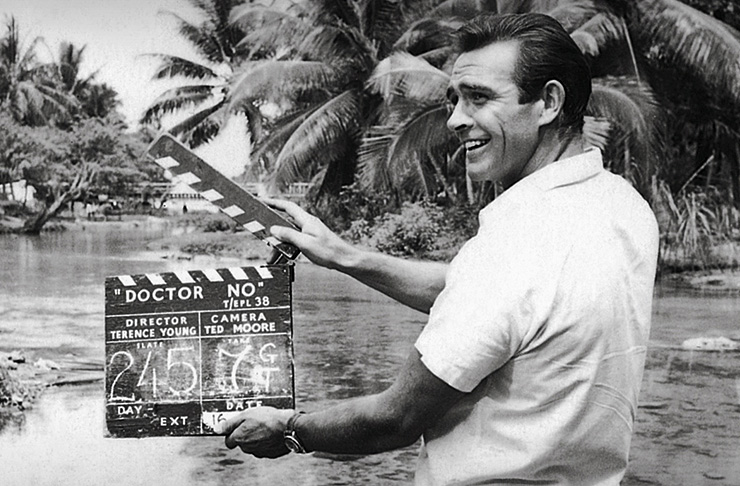 |
|
Joining Saltzman &
Broccoli as Associate Producer on Dr. No was frequent Warwick Films
collaborator, Stanley Sopel – a role he would reprise on the next six
films in the series, although would only be formally credited for On
Her Majesty's Secret Service (1969) and Diamonds Are Forever
(1971). Whilst Saltzman & Broccoli oversaw the whole production, Sopel
handled day-to-day matters, and also served as production accountant on
Dr. No (1962). When Sean Connery departed the EON Productions series
for the final time in 1971, he set up his own company Tantallon Films to
produce The Offence (1972) – one of the films United Artists had
agreed to finance following his record-breaking $1.25 million contract for
returning to the role of James Bond in Diamonds Are Forever (1971).
Tantallon Films was a four-man partnership between Sean Connery, his agent
Richard Hatton, British film producer Denis O'Dell, and Stanley Sopel. |
|
|
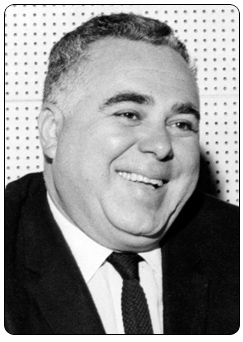 |
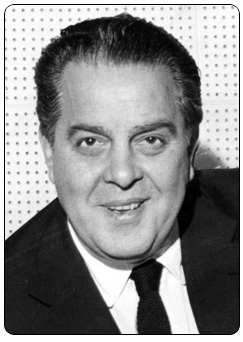 |
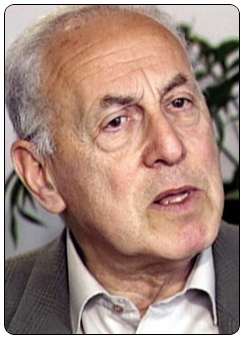 |
Harry Saltzman
(1915-1994)
Dr. No (1962)
From Russia With Love (1963)
Goldfinger (1964)
Thunderball (1965)
Executive Producer
Welcome to Japan Mr. Bond (1967)
Executive Producer
(a 50-minute promotional television
documentary produced by Danjaq S.A.)
You Only Live Twice (1967)
On Her Majesty's Secret Service (1969)
Diamonds Are Forever (1971)
Live And Let Die (1973)
The Man With The Golden Gun (1974) |
Albert R.
‘Cubby’
Broccoli (1909-1996)
Dr. No (1962)
From Russia With Love (1963)
Goldfinger (1964)
Thunderball (1965)
Executive Producer
Welcome to Japan Mr. Bond (1967)
Executive Producer
(a 50-minute promotional television
documentary produced by Danjaq S.A.)
You Only Live Twice (1967)
On Her Majesty's Secret Service (1969)
Diamonds Are Forever (1971)
Live And Let Die (1973)
The Man With The Golden Gun (1974)
The Spy Who Loved Me (1977)
Moonraker (1979)
For Your Eyes Only (1981)
Octopussy (1983)
A View To A Kill (1985)
The Living Daylights (1987)
Licence To Kill (1989) |
Stanley Sopel (1924-2007)
Dr. No (1962)
Associate Producer [uncredited]
Production Accountant [uncredited]
From Russia With Love (1963)
Associate Producer [uncredited]
Goldfinger (1964)
Associate Producer [uncredited]
Thunderball (1965)
Associate Producer [uncredited]
You Only Live Twice (1967)
Associate Producer [uncredited]
On Her Majesty's Secret Service (1969)
Associate Producer
Diamonds Are Forever (1971)
Associate Producer |
|
 |
|
Following a
high-profile case in the UK High Court in late 1963, Irish filmmaker
Kevin McClory acquired the screen rights to Ian Fleming's THUNDERBALL,
and immediately made plans to produce a film based on the ninth James
Bond novel. Following the success of the first three EON Productions
James Bond films, American producer
Charles K. Feldman,
who had owned the screen rights to CASINO ROYALE since 1960, also
planned to film Ian Fleming's debut novel. Unable to come to an
agreement with Albert R. Broccoli & Harry Saltzman to make it as an
official entry in the EON Productions series, Feldman went ahead and
made Casino Royale a spoof version along the lines of his
previous success What’s New Pussycat? (1965). Rather than have
another rival James Bond film threatening their success, Broccoli &
Saltzman reluctantly went into partnership with Kevin McClory, who
served as sole producer on Thunderball (1965). As part of the
licensing agreement Kevin McClory was not permitted to exercise his
rights to the THUNDERBALL property for 10 years, but as soon as the
contractual exclusion between himself and EON Productions had expired,
McClory once again announced plans to make another film based on the
story he had co-written with Ian Fleming and Jack Whittingham. Kevin
McClory teamed up with author Len Deighton and Sean Connery in 1975,
and after many legal battles and a troubled production, the film
eventually reached the screen as Never Say Never Again in 1983,
with McClory serving as Executive Producer. In 1999 EON Productions
finally secured the rights to Ian Fleming's first James Bond novel
CASINO ROYALE. Following Kevin McClory's death in 2006, his
THUNDERBALL rights were acquired by EON Productions in 2013. |
|
 |
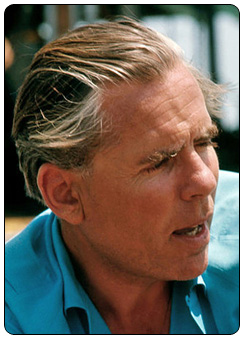 |
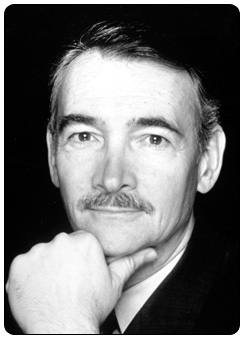 |
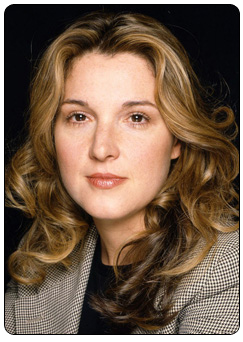 |
Kevin McClory (1926-2006)
Thunderball (1965)
Producer
Never Say Never Again (1983)
Executive Producer |
Michael G. Wilson
(1942- )
The Spy Who Loved Me (1977)
Special Assistant to Producer
Moonraker (1979)
Executive Producer
For Your Eyes Only (1981)
Executive Producer
Octopussy (1983)
Executive Producer
A View To A Kill (1985)
The Living Daylights (1987)
Licence To Kill (1989)
GoldenEye (1995)
Tomorrow Never Dies (1997)
The World Is Not Enough (1999)
Die Another Day (2002)
Casino Royale (2006)
Quantum of Solace (2008)
Skyfall (2012)
Spectre (2015)
No Time To Die (2021) |
Barbara Broccoli
(1960- )
Octopussy (1983)
Executive Assistant
A View To A Kill (1985)
Additional Assistant Director
The Living Daylights (1987)
Associate Producer
Licence To Kill (1989)
Associate Producer
GoldenEye (1995)
Tomorrow Never Dies (1997)
The World Is Not Enough (1999)
Die Another Day (2002)
Casino Royale (2006)
Quantum of Solace (2008)
Skyfall (2012)
Spectre (2015)
No Time To Die (2021)
|
|
 |
|
In 1975 Harry
Saltzman’s personal financial difficulties had forced him to sell his
share of the James Bond franchise to
United Artists, and Albert R.
‘Cubby’ Broccoli then became the sole producer of the film series.
Joining him on The Spy Who Loved Me (1977) as ‘Special
Assistant’ was his stepson Michael G. Wilson, who progressed to
Executive Producer and Co-Screenwriter on the James Bond films of the
1980s. Barbara Broccoli joined her father and half-brother as an
Executive Assistant on
Octopussy in 1983, and later became an Associate Producer on
the two Timothy Dalton James Bond films, The Living Daylights
(1987) and Licence To Kill (1989). After a six year hiatus as a
result of legal battles with MGM/UA, Albert R. Broccoli handed over
the production of the James Bond films to his children in 1994.
Following Broccoli's death in 1996, Tomorrow Never Dies
(1997) [and all subsequent films in the series] bore the opening credit
‘Albert R. Broccoli's EON Productions presents’. Michael G. Wilson's
youngest son Gregg joined the series in 1999 and progressed to
Associate Producer on the last three Daniel Craig films, with the
James Bond actor himself serving as Co-Producer on Spectre
(2015) and No Time To Die (2021). On February 20, 2025 it was
announced that Michael G. Wilson, Barbara Broccoli and Amazon MGM
Studios had formed a new
joint venture to house the James Bond intellectual property rights,
and those parties will remain co-owners of the franchise. Under the
terms of the new venture, Amazon MGM Studios gained creative control
of the James Bond franchise. |
|
|
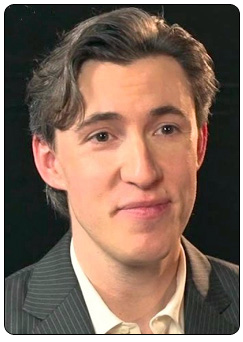 |
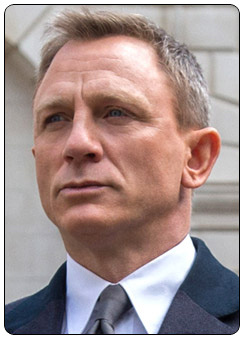 |
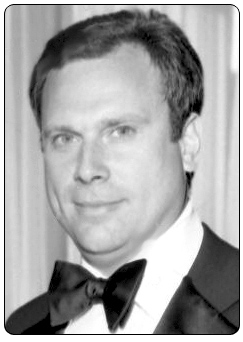 |
Gregg Wilson (1979-
)
The World Is Not Enough (1999)
Assistant to Composer
David Arnold
Die Another Day (2002)
Development Executive
Casino Royale (2006)
Assistant Editor
Quantum of Solace (2008)
Assistant Producer
Skyfall (2012)
Associate Producer
Spectre (2015)
Associate Producer
[with Jayne-Ann Tenggren (1967- )]
No Time To Die (2021)
Associate Producer |
Daniel Craig (1968- )
Spectre (2015)
Co-Producer
No Time To Die (2021)
Co-Producer |
William P. Cartlidge (1942-2021)
You Only Live Twice (1967)
Assistant Director
The Spy Who Loved Me (1977)
Associate Producer
Moonraker (1979)
Associate Producer |
|
 |
|
Since 1977 there have
also been four other Associate Producers on the James Bond films:
William P. Cartlidge joined the series as Assistant Director to Lewis
Gilbert on You Only Live Twice (1967). When Gilbert returned
for The Spy Who Loved Me (1977) and Moonraker (1979),
his long-time collaborator Bill Cartlidge became Associate Producer.
Thomas Pevsner was Associate Producer on the 1980s James Bond films,
returning as Executive Producer on GoldenEye (1995). Anthony
Waye joined the series as an Assistant Director on For Your Eyes
Only (1981) – and later Associate/Executive Producer, finally
serving as location production manager on Skyfall (2012).
Similarly, Callum McDougall progressed from Assistant Director on the
two Timothy Dalton James Bond films, becoming Executive Producer on
four Daniel Craig films 2006-2015. |
|
 |
|
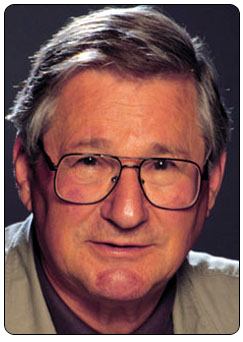 |
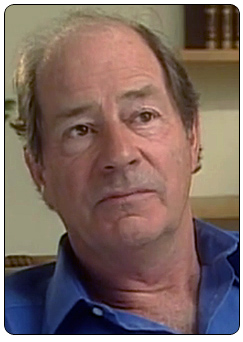 |
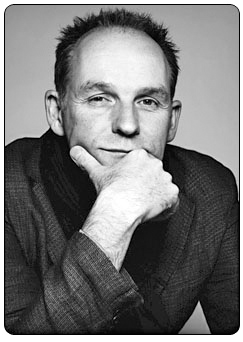 |
Thomas Pevsner (1926-2014)
For Your Eyes Only (1981)
Associate Producer
Octopussy (1983)
Associate Producer
A View To A Kill (1985)
Associate Producer
The Living Daylights (1987)
Associate Producer
Licence To Kill (1989)
Associate Producer
GoldenEye
(1995)
Executive Producer |
Anthony Waye (1938- )
For Your Eyes Only (1981)
Assistant Director
Octopussy (1983)
Assistant Director
A View To A Kill (1985)
Production Supervisor
The Living Daylights (1987)
Associate Producer
Licence To Kill (1989)
Associate Producer
GoldenEye
(1995)
Associate Producer
Tomorrow Never Dies (1997)
Line Producer
The World Is Not Enough (1999)
Line Producer
Die Another Day (2002)
Executive Producer
Casino Royale (2006)
Executive Producer
[with Callum McDougall]
Quantum of Solace (2008)
Executive Producer
Skyfall (2012)
Location Production Manager
Also Associate Producer
Goldeneye (1989) Anglia Television
Directed by Don Boyd (1948- )
Written by Reg Gadney (1941-2018)
[based on The Life of Ian Fleming
by John Pearson]
Starring Charles Dance as
Ian Fleming |
Callum McDougall (1963- )
The Living Daylights (1987)
Additional Assistant Director
Licence To Kill (1989)
Second Assistant Director
GoldenEye
(1995)
Unit Production Manager
Tomorrow Never Dies (1997)
Unit Production Manager
The World Is Not Enough (1999)
Line Producer
Die Another Day (2002)
Co-Producer
Casino Royale (2006)
Executive Producer
[with Anthony Waye]
Quantum of Solace (2008)
Executive Producer
Skyfall (2012)
Executive Producer
Unit Production Manager
Spectre (2015)
Executive Producer
Unit Production Manager |
|
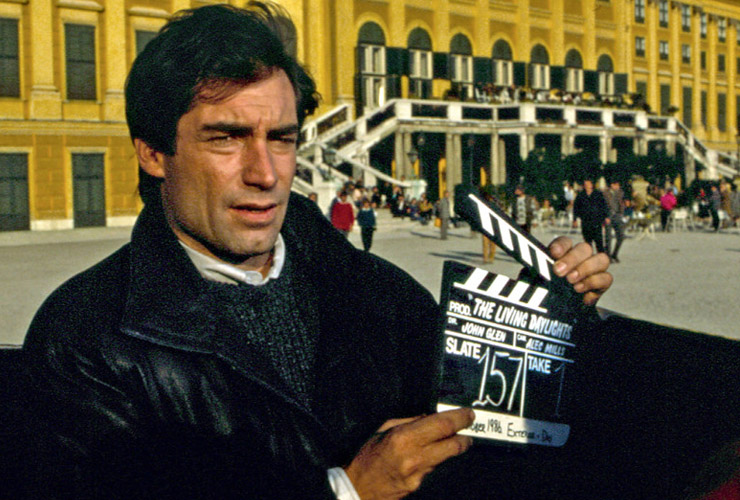 |
|
|
|
Hired to direct the first
James Bond adventure was Terence Young, who had worked on four productions
for producer Albert R. Broccoli's Warwick Films, and also directed Sean
Connery in one of his early big screen appearances, Action of the Tiger
(1957). Young and Connery set the style for the James Bond series with the
first two 007 films that became instant hits in the UK. Unable to come to
terms with the producers for Goldfinger (1964), Terence Young was
succeeded by Guy Hamilton (also considered for Dr. No) who arguably
set the template by which all later films were compared. Goldfinger
(1964) was another international box-office hit and paved the way for
Terence Young's return for Thunderball (1965) – which went on to
even bigger commercial success. Following his hit film Alfie
(1966), starring Michael Caine, EON Productions turned to Lewis Gilbert,
who seemed an unusual choice to direct You Only Live Twice (1967),
which at the time was to be Sean Connery's final outing as 007. |
|
 |
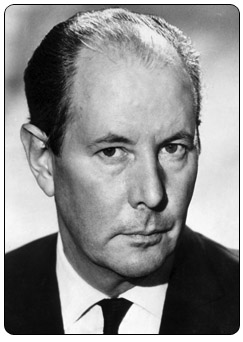 |
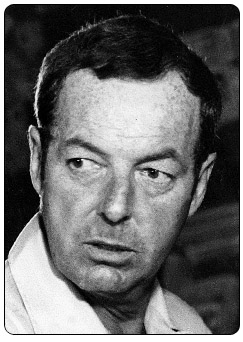 |
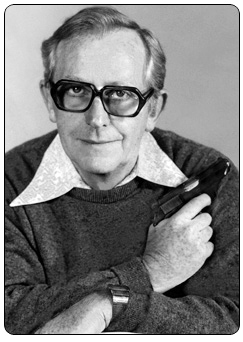 |
|
Terence Young
(1915-1994)
Dr. No (1962)
From Russia With Love (1963)
Thunderball (1965) |
Guy Hamilton (1922-2016)
Goldfinger (1964)
Diamonds Are Forever (1971)
Live
And Let Die (1973)
The Man With The Golden Gun (1974) |
Lewis Gilbert
(1920-2018)
You Only Live Twice (1967)
The Spy Who Loved Me (1977)
Moonraker (1979) |
|
|
|
|
 |
|
Having edited the
first four films in the EON Productions series, and acting as supervising editor and
second unit director on You Only Live Twice (1967), Peter Hunt
was promoted to director for On Her Majesty's Secret Service
(1969), which starred newcomer George Lazenby as James Bond. Eschewing
the gadgetry and gimmicks of the first five films, On Her Majesty's
Secret Service stuck closely to Ian Fleming's source novel, and
whilst not as commercially successful as its predecessors, has since
become regarded as one of the best films of the series. Despite the
mixed reception on its release in 1969, On Her Majesty's Secret
Service remains a high point of the EON Productions series, and
proved that the films could continue without the star who had made
them so popular. However, financier and distributor United Artists had
other opinions, and after George Lazenby had announced that On Her
Majesty's Secret Service would be his only film as 007, they were
convinced that only one man could guarantee a box-office hit, and made
an unprecedented deal with Sean Connery for a return to the role that
had made him a star. Also returning for Diamonds Are Forever
(1971) was director Guy Hamilton, who stayed with the series for the
next two films and introduced the world to its third big screen James
Bond, Roger Moore.
For The Spy Who
Loved Me (1977) and Moonraker (1979), Lewis Gilbert
returned as director, and with Roger Moore took the series to new heights of
outlandish success. The James Bond films of the 1980s were then all
directed by John Glen, who had also worked his way up the ranks from
Editor and Second Unit director. Glen consolidated Roger Moore's
success as 007, and introduced a new actor to the role with Timothy
Dalton in 1987, but his second film, Licence To Kill (1989),
suffered at the box-office as the series tried hard to compete with
the new wave of more violent US blockbusters. Following the release of
Licence To Kill the James Bond series went into an enforced
hiatus as ongoing legal battles between DANJAQ and MGM/UA prevented
EON Productions from making any further films. |
|
|
|
|
 |
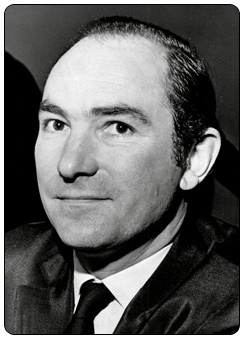 |
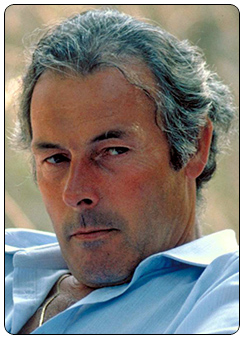 |
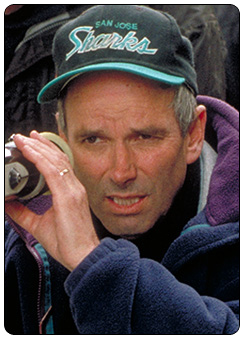 |
|
Peter Hunt
(1925-2002)
On Her Majesty's Secret Service (1969)
[Also appears as a reflection in the
Universal Exports sign seen as
the
first shot in the film after the traditional
gun barrel
opening sequence]
Dr. No (1962)
Editor
From Russia With Love (1963)
Editor
Goldfinger (1964)
Editor
Thunderball (1965)
Supervising
Editor
You Only Live
Twice (1967)
2nd Unit Director & Supervising Editor |
John Glen (1932- )
For Your Eyes Only (1981)
Octopussy (1983)
A View
To A Kill (1985)
The Living Daylights (1987)
Licence To Kill (1989)
On Her Majesty's Secret Service (1969)
Editor & 2nd Unit Director
The Spy Who Loved Me (1977)
Editor
2nd Unit Director [with Ernest Day]
Moonraker (1979)
Editor
2nd Unit Director [with Ernest Day] |
Martin Campbell
(1943- )
GoldenEye (1995)
Casino Royale (2006)
|
 |
|
The legal proceedings
were not fully resolved until 1993, by which time actor Timothy
Dalton's original seven-year contract had expired. Although keen to
complete a third James Bond film, Timothy Dalton declined to sign
another multi-picture contract, and ultimately announced his
resignation from the role of James Bond on April 12, 1994. Pierce
Brosnan was then revealed as his replacement on June 8, 1994 – after
losing the role to Dalton in 1986. With production duties now in the
hands of his children, Albert R. Broccoli stepped back and a new team
steered the franchise to even greater heights into the new millennium.
Overseeing the introduction of a new James Bond was former British
television director Martin Campbell, who declined to continue with the
series although
he was offered the opportunity to direct further James Bond films
after GoldenEye (1995). Pierce Brosnan's next three James Bond
films each had a new director at the helm, and were all commercially
very successful, despite the different styles each director brought to
their own production. |
 |
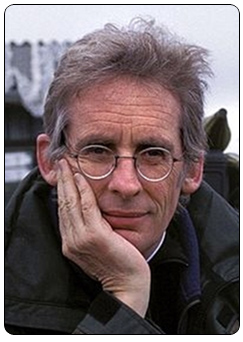 |
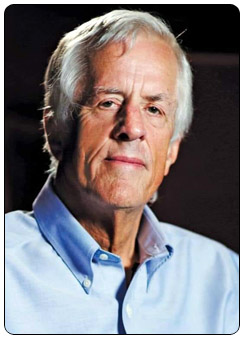 |
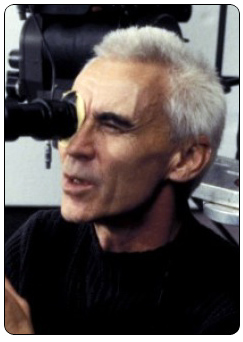 |
Roger Spottiswoode (1945- )
Tomorrow Never Dies (1997) |
Michael Apted (1941-2021)
The World Is Not Enough (1999) |
Lee Tamahori (1950-2025)
Die Another Day (2002) |
 |
|
Pierce Brosnan's
fourth James Bond film, Die Another Day (2002), was the most
successful to date, but in the wake of critical response to the
production, Co-Producers Michael G. Wilson & Barbara Broccoli decided
that a new direction was needed. With their acquisition of the rights
to CASINO ROYALE in 2003, it was felt that the time was right to
finally bring Ian Fleming's debut novel, and the origin story of James
Bond, to the big screen – with a new actor for a new generation.
Martin Campbell agreed to return as director, after successfully introducing a
new 007 in 1995, and actor Daniel Craig was controversially announced
as the new James Bond on October 14, 2005. Despite the constant media
attention and negative press throughout the production of Casino
Royale, when the film was released on November 14, 2006, most
critics and fans were wowed by the film, which marked a return to the
series’ literary roots, and a more grounded hero that built on the
foundations laid by George Lazenby and Timothy Dalton. Its follow-up,
Quantum of Solace (2008), was directed by German-born Marc
Forster, and marked a conspicuous shift in style from its predecessor.
The film consolidated Daniel Craig's presence as the new James Bond –
but it would be another four years until the next entry in the series.
|
 |
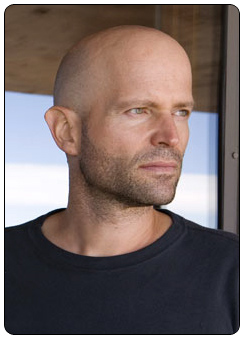 |
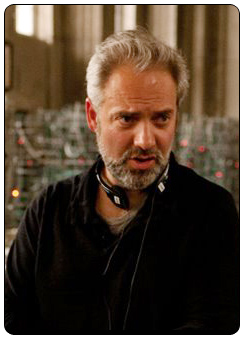 |
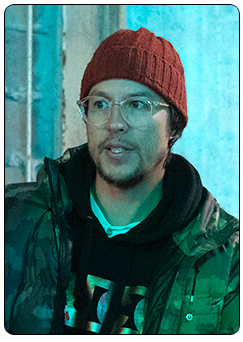 |
Marc Forster (1969- )
Quantum of Solace (2008) |
Sir Sam Mendes (1965- )
Skyfall (2012)
Spectre (2015) |
Cary Joji Fukunaga (1977- )
No Time To Die (2021)
[also co-screenwriter with
Neal Purvis & Robert Wade and Phoebe Waller-Bridge] |
|
|
|
Directed by multi
award-winning Sam Mendes, whose involvement undoubtedly elevated the
status of the franchise, Skyfall (2012) benefited greatly from
being released in the year that marked the Diamond Jubilee of H.M.
Queen Elizabeth II, and the Summer Olympics held in London. With the
country already in the grip of national patriotism on a scale not seen
since the end of World War II, Skyfall went on to take over
$1-billion at the international box-office, becoming the most
financially successful film of the franchise (when not adjusted for
inflation). Following the acquisition of the rights
to SPECTRE from Kevin McClory's estate in 2013, it was inevitable that
the crime organisation and its leader, Ernst Stavro Blofeld, would now
be re-introduced to the James Bond universe. Sam Mendes returned to
direct Spectre (2015) – the first director to oversee two
back-to-back productions since John Glen. Originally slated to be
directed by Academy Award-winning British film maker Danny Boyle,
BOND 25 was announced in May 2018, but within three months Boyle
and EON Productions agreed to part company due to creative
differences. American Cary Joji Fukunaga was then brought on board to
direct and the release date was pushed forward on two occasions.
Filming got underway in March 2019, and a press conference was held at
Ian Fleming's former home ‘Goldeneye’ in Jamaica on April 25, 2019.
|
|
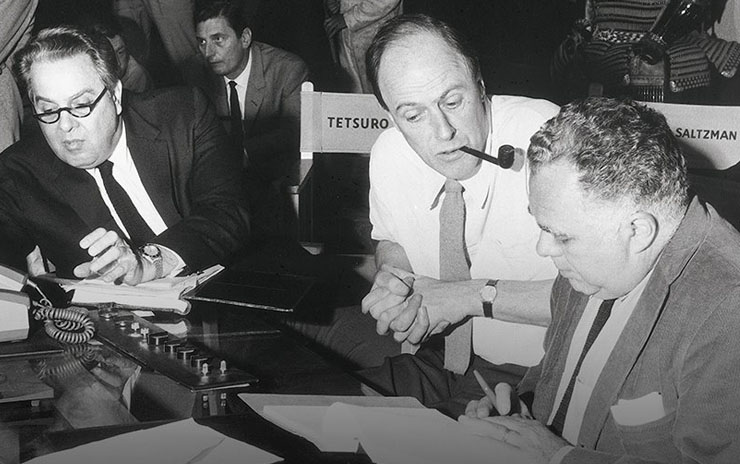 |
|
|
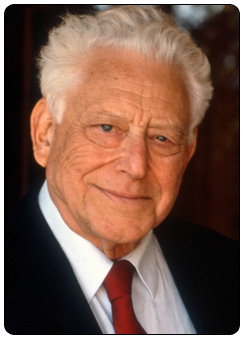 |
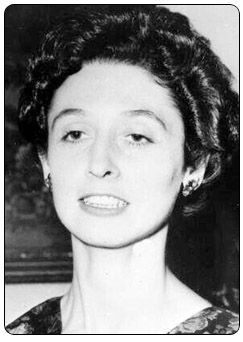 |
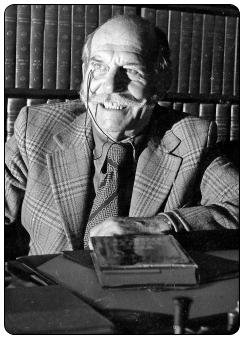 |
|
Richard Maibaum
(1909-1991)
Dr. No (1962)
Screenplay
[with Johanna Harwood & Berkely Mather]
From Russia With
Love (1963)
Screenplay
[adapted by Johanna Harwood]
Goldfinger (1964)
Screenplay
[with Paul Dehn]
Thunderball
(1965)
Screenplay
[with John Hopkins]
On Her Majesty's Secret Service (1969)
Screenplay
[additional dialogue
Simon Raven (1927-2001)]
Diamonds Are Forever
(1971)
Screenplay
[with Tom Mankiewicz]
The Man With The Golden Gun (1974)
Screenplay
[with Tom Mankiewicz]
The Spy Who Loved Me (1977)
Screenplay
[with Christopher Wood]
For Your Eyes Only (1981)
Screenplay
[with Michael G. Wilson]
Octopussy (1983)
Screenplay
[with Michael G. Wilson &
George MacDonald Fraser]
A View To A Kill (1985)
Screenplay
[with Michael G. Wilson]
The Living Daylights (1987)
Screenplay
[with Michael G. Wilson]
Licence To Kill (1989)
Written by
[with Michael G. Wilson] |
Johanna Harwood
(1930- )
Dr. No (1962)
Screenplay
[with Richard Maibaum & Berkely Mather]
From Russia With
Love (1963)
[adapted by Johanna Harwood]
Johanna Harwood was also the first
author to
write a James Bond pastiche.
Written in the style
of Ian Fleming,
Some Are Born Great was first published
in the 3 September 1959
issue of
Nursery World magazine, then later
reprinted in the Spring 1960 issue of publisher Jonathan Cape's
in-house magazine Now & Then. |
Berkely Mather
(1909-1996)
[John Evan ‘Jasper’ Weston-Davies]
Dr. No (1962)
Screenplay
[with Richard Maibaum & Johanna Harwood]
From Russia With
Love (1963)
Screenplay
[Uncredited]
Goldfinger (1964)
Screenplay (2nd draft)
[Uncredited] |
 |
|
After collaborating
on a handful of Warwick film productions for Albert R. Broccoli in the
late 1950s, American Screenwriter Richard Maibaum was the natural
choice to write the script for the first James Bond film. Although
Maibaum had originally written a draft screenplay for THUNDERBALL in
1961, this was barely recognisable as being in the same style of James
Bond scripts that would follow. From the very beginning the writing of
the screenplays was a collaborative effort, and several writers
contributed drafts for Dr. No (1962), including Wolf Mankowitz
and another of Harry Saltzman's frequent associates, Johanna Harwood,
who would also adapt From Russia With Love (1963) for the
screen. British novelist Berkely Mather also made significant
contributions to the screenplays of the first three James Bond films,
although he was only credited for Dr. No (1962). For the second
James Bond film, Harry Saltzman secured the services of British
novelist Len Deighton, author of The Ipcress File (1962) and
seven further novels featuring the un-named protagonist who became
‘Harry Palmer’ in the three films produced by Saltzman in the 1960s,
all starring Michael Caine.
Len Deighton wrote a draft screenplay for
From Russia With Love (1963) after he had accompanied Harry
Saltzman, Director Terence Young and Art Director
Syd Cain on a trip to
Istanbul to scout locations in December 1962. After Deighton's draft
was rejected, Richard Maibaum returned to script From Russia With
Love (1963), which in turn was further revised by Director Terence
Young. |
 |
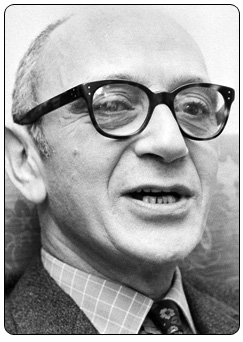 |
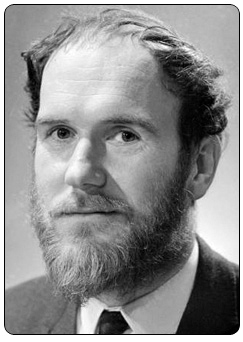 |
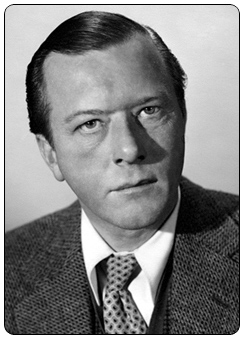 |
|
Paul Dehn
(1912-1976)
Goldfinger (1964)
Screenplay
[with Richard Maibaum] |
John Hopkins
(1931-1998)
Thunderball (1965)
Screenplay
[with Richard Maibaum]
(based on a screenplay
by Jack Whittingham)
(based on the original story by
Kevin McClory, Jack Whittingham
and Ian Fleming) |
Jack Whittingham
(1910-1972)
Thunderball (1965)
[based on a screenplay
by Jack Whittingham]
(based on the original story by
Kevin McClory, Jack Whittingham
and Ian Fleming) |
 |
|
Collaborating with
Richard Maibaum on the screenplay for Goldfinger (1964) was
English writer Paul Dehn, who was known to Ian Fleming via their
exploits in the Special Operations Executive during WWII. When
Thunderball was chosen as the fourth James Bond film over the
originally announced On Her Majesty's Secret Service, a new
script was written by Richard Maibaum, who this time collaborated with
English film, stage, and television writer John Hopkins, whose 1968
play This Story of Yours later impressed Sean Connery, who
bought the rights and invited Hopkins to adapt the project into a film
that was released in 1973 as The Offence. In order to
capitalise on the success of the James Bond films in Japan, You
Only Live Twice became the fifth entry in the EON Productions
series, and the proposed On Her Majesty's Secret Service
shelved again, although Richard Maibaum had begun work on the
screenplay. Brought in to script You Only Live Twice was
American television producer and screenwriter Harold Jack Bloom, who
accompanied the Producers and Production Designer
Ken Adam on a location
scouting trip to Japan in February 1966. Bloom's submitted draft
departed from Ian Fleming's source novel and did not feature Ernst
Stavro Blofeld, but did introduce the villain's plans to threaten the
Russian and American space programs. Although many of Bloom's ideas
reached the screen (and he received an appropriate on-screen credit for his
contribution), the Producers hired popular British children's novelist
Roald Dahl to write the final screenplay. |
 |
|
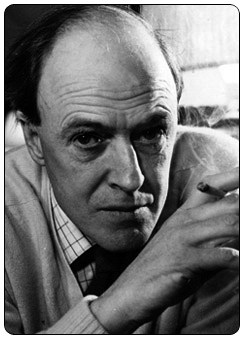 |
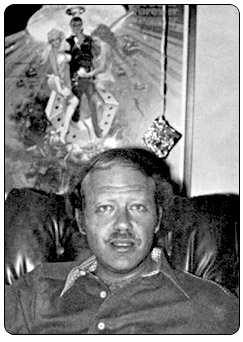 |
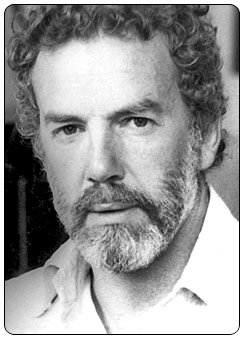 |
|
Roald Dahl
(1916-1990)
You Only Live Twice (1967)
Screenplay
[with
Harold Jack Bloom (1924-1999)]
Additional story material
(First & second draft screenplays) |
Tom Mankiewicz
(1942-2010)
Diamonds Are Forever (1971)
Screenplay
[with Richard Maibaum]
Live And Let Die (1973)
Screenplay
The Man With The Golden Gun (1974)
Screenplay
[with Richard Maibaum]
The Spy Who Loved Me (1977)
[uncredited rewrite]
Moonraker (1979)
Story outline [uncredited] |
Christopher Wood
(1935-2015)
The Spy Who Loved Me (1977)
Screenplay
[with Richard Maibaum]
Moonraker (1979)
Screenplay
Also wrote novelizations of his screenplays
JAMES BOND, THE
SPY WHO LOVED ME (1977) and
JAMES BOND AND MOONRAKER (1979) |
|
|
|
After being cancelled
twice before, On Her Majesty's Secret Service finally reached
the screen in 1969, with a screenplay credited solely to Richard
Maibaum, who revised his earlier drafts written as early
as 1964. Maibaum then expanded on his 1966 draft to bring the final
screenplay closer to Ian Fleming's 1963 novel. With the structure in
place, Director Peter Hunt brought in English author, playwright,
essayist, television writer, and screenwriter Simon Raven to polish
the dialogue. Raven's work is most notable in the scenes involving
James Bond impersonating Sir Hilary Bray, and the dialogue between
Blofeld and Tracy at Piz Gloria, including adapted lines from the 1913
poem The Golden Journey to Samarkand by James Elroy Flecker
(1884-1915). With the return of Sean Connery in Diamonds Are
Forever (1971), Richard Maibaum's original screenplay for the
seventh 007 adventure began as a direct sequel to On Her Majesty's
Secret Service (1969), with Bond and Marc-Ange Draco seeking
revenge for the murder of Tracy. Later drafts deviated even further
from Ian Fleming's 1956 novel and featured Auric Goldfinger's twin
brother! The return of Sean Connery (after American actor
John Gavin had been
signed to play James Bond in Diamonds Are Forever, and then
paid-off) meant that the script also had to meet the actor's approval,
and American screenwriter Tom Mankiewicz was engaged to rewrite
Maibaum's script. The resulting screenplay marked a change in
direction for the series, and the more comedic touches remained in
place for the next decade as Mankiewicz successfully updated Ian
Fleming's LIVE AND LET DIE (1954) for Roger Moore's debut as James
Bond, and then writing The Man With The Golden Gun (1974).
Mankiewicz left the production during the scripting stage and the film
was rewritten with additional material by Richard Maibaum, who
returned to the series after a one film absence. Tom Mankiewicz then
made uncredited contributions to the script for The Spy Who Loved Me
(1977) – along with many other writers (including a first draft by
British writer Anthony Burgess) as the series reached a turning point
following the split between Harry Saltzman & Albert R. Broccoli.
Burgess was an admirer of Ian Fleming's writing and provided a new
preface for the 1988-89
paperback editions of the James Bond novels published by Coronet
Books in the UK. English novelist and screenwriter Christopher Wood was brought in by
Director Lewis Gilbert to rewrite Richard Maibaum's screenplay for
The Spy Who Loved Me (1977), which led to him becoming the sole
credited writer on Moonraker (1979). |
|
|
|
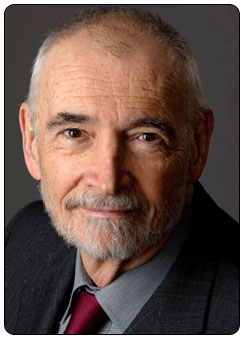 |
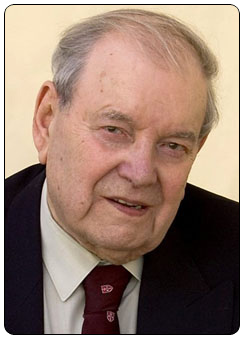 |
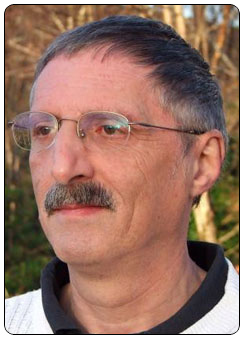 |
|
Michael G. Wilson
(1942- )
For Your Eyes Only (1981)
Screenplay
[with Richard Maibaum]
Octopussy (1983)
Screenplay
[with Richard Maibaum &
George MacDonald Fraser]
A View To A Kill (1985)
Screenplay
[with Richard Maibaum]
The Living
Daylights (1987)
Screenplay
[with Richard Maibaum]
Licence To Kill
(1989)
Written by
[with Richard Maibaum] |
George MacDonald
Fraser (1925-2008)
Octopussy (1983)
Screenplay
[with Richard Maibaum &
Michael G. Wilson] |
Jeffrey Caine
(1944- )
GoldenEye (1995)
Screenplay
[with Bruce Feirstein]
Story by & first draft screenplay by
Michael France (1962-2013)
|
|
|
|
After the outer space
excesses of Moonraker (1979), the producers returned James Bond
to earth with For Your Eyes Only (1981), which had originally
been announced as the 11th film in the series at the end of The Spy
Who Loved Me (1977). For Your Eyes Only had begun with an
original script by English novelist and screenwriter Ronald Hardy
(1919-1991), but this was rejected and Richard Maibaum returned to
write a screenplay that was revised further in collaboration with
Michael G. Wilson to incorporate elements and characters from Ian
Fleming's short stories FOR YOUR EYES ONLY and RISICO. Wilson then
collaborated with Richard Maibaum and Scottish author and screenwriter
George MacDonald Fraser [best known for a series of literary works
featuring the character of Flashman created by Thomas Hughes
(1822–1896) in the semi-autobiographical Tom Brown's School Days
(1857)] on the screenplay for Octopussy (1983). Michael G.
Wilson continued to collaborate with Richard Maibaum on the
screenplays for the next three films in the series, and as a result of
the 1988 Writers Guild of America strike he wrote much of what was
then titled License Revoked on his own, although Maibaum
received co-screenwriting credit. Licence To Kill (1989)
underperformed at the US box-office, and a legal battle between DANJAQ
and MGM/UA prevented EON Productions from making more James Bond
films. Richard Maibaum and director John Glen left the series, which
then went into a hiatus until 1994 when the legal issues were
resolved. |
|
|
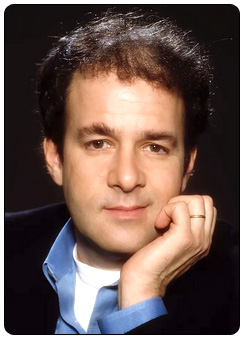 |
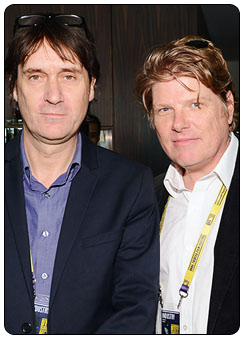 |
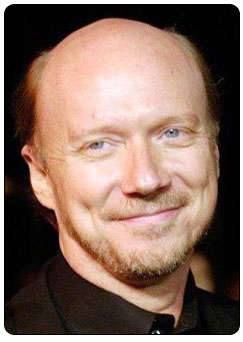 |
Bruce Feirstein (1953- )
GoldenEye (1995)
Screenplay
[with Jeffrey Caine]
(story by Michael France)
Tomorrow Never Dies (1997)
Written by
The World Is Not Enough (1999)
Screenplay
[with Neal Purvis & Robert Wade]
(story by Neal Purvis & Robert Wade) |
Neal Purvis (1961- )
Robert Wade (1962- )
The World Is Not
Enough (1999)
Screenplay
[with Bruce Feirstein]
(story by Neal Purvis & Robert Wade)
Die Another Day (2002)
Written by
Casino Royale (2006)
Screenplay
[with Paul Haggis]
Quantum of Solace (2008)
Screenplay
[with Paul Haggis]
Skyfall (2012)
Screenplay
[with John Logan]
Spectre (2015)
Screenplay
[with John Logan & Jez Butterworth]
(story by John Logan and
Neal Purvis & Robert Wade)
No Time To Die (2021)
Screenplay
[with Cary Joji Fukunaga &
Phoebe Waller-Bridge]
(story by
Neal Purvis & Robert Wade
and Cary Joji Fukunaga) |
Paul Haggis (1953- )
Casino Royale (2006)
Screenplay
[with Neal Purvis & Robert Wade]
(based on the novel by Ian Fleming)
Quantum of Solace (2008)
Screenplay
[with Neal Purvis & Robert Wade] |
|
|
|
The James Bond film series
resumed production in 1994 with GoldenEye, which began with an
original storyline and first draft script by American screenwriter
Michael France. The final script was jointly credited to Jeffrey Caine
and Bruce Feirstein, who then received solo screenplay credit for
Tomorrow Never Dies (1997), after American crime writer
Donald
Westlake (1933-2008) had worked on two treatments in collaboration
with co-producer Michael G. Wilson. Although the Westlake treatment
went unused by the Bond filmmakers, the author developed the ideas
into a novel, written in 1998 that went unpublished until 2017 –
almost a decade after his death. The novel was first published in the
USA by Hard Case Crime as Forever And A Death – one of
titles Westlake had suggested for the 18th James Bond film.
British screenwriting duo Neal Purvis &
Robert Wade joined the series with The World Is Not Enough
(1999), and have co-written all remaining James Bond films up to and
including No Time To Die (2021). The six Bond films of the new
millennium have been an even more collaborative effort between Purvis
& Wade and additional American screenwriters, including Paul Haggis,
John Logan and English playwright, screenwriter, and film director
‘Jez’ Butterworth. The most recent film, eventually released as No
Time To Die (2021), began life with a script by Neal Purvis &
Robert Wade that was ultimately abandoned when film director
Danny
Boyle and his regular writing partner John Hodge became attached to
the project in May 2018. Boyle and Hodge left the production in August
2018 due to ‘creative differences’, and Boyle's replacement, American
director Cary Joji Fukunaga, joined the project in September 2018. The
Purvis & Wade screenplay was resurrected, but rewritten by Fukunaga
(among others), with a final script polish from Phoebe Waller-Bridge
as production finally got underway in March 2019. Filming wrapped on
October 25, 2019 and the publicity machine was set in motion ahead of
the scheduled April 2020 release. On March 3, 2020, with the world now
in the grip of the Coronavirus pandemic, the release of No Time To
Die was postponed until November 12, 2020. The release date was
subsequently moved to April 2nd, and then October 8, 2021. No Time
To Die finally premiered on Tuesday September 28, 2021, at London’s
Royal Albert Hall, and has continued to divide critics and fans ever
since. |
|
|
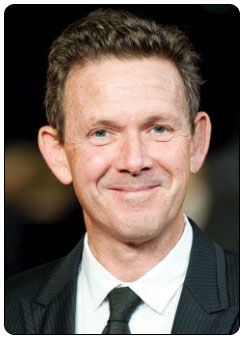 |
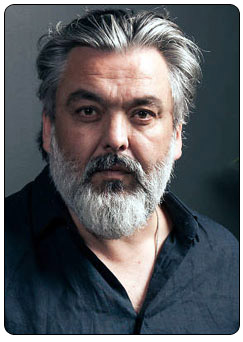 |
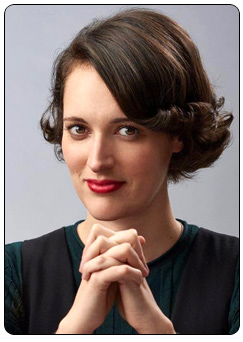 |
John Logan (1961- )
Skyfall (2012)
Screenplay
[with Neal Purvis & Robert Wade]
Spectre (2015)
Screenplay
[with Neal Purvis & Robert Wade
and Jez Butterworth]
(story by John Logan and
Neal Purvis & Robert Wade) |
Jeremy ‘Jez’ Butterworth (1969- )
Spectre (2015)
Screenplay
[with John Logan
and Neal Purvis & Robert Wade]
(story by John Logan and
Neal Purvis & Robert Wade)
Jez Butterworth also performed uncredited re-writes to the screenplay
of Skyfall (2012) |
Phoebe Waller-Bridge (1985- )
No Time To Die
(2021)
Screenplay
[with Neal Purvis & Robert Wade
and Cary Joji Fukunaga] |
|
|
ADDITIONAL NOTABLE
SCREENWRITERS |
|
|
|
|
Key
personnel on other James Bond films |
|
|
|
|
|
|


